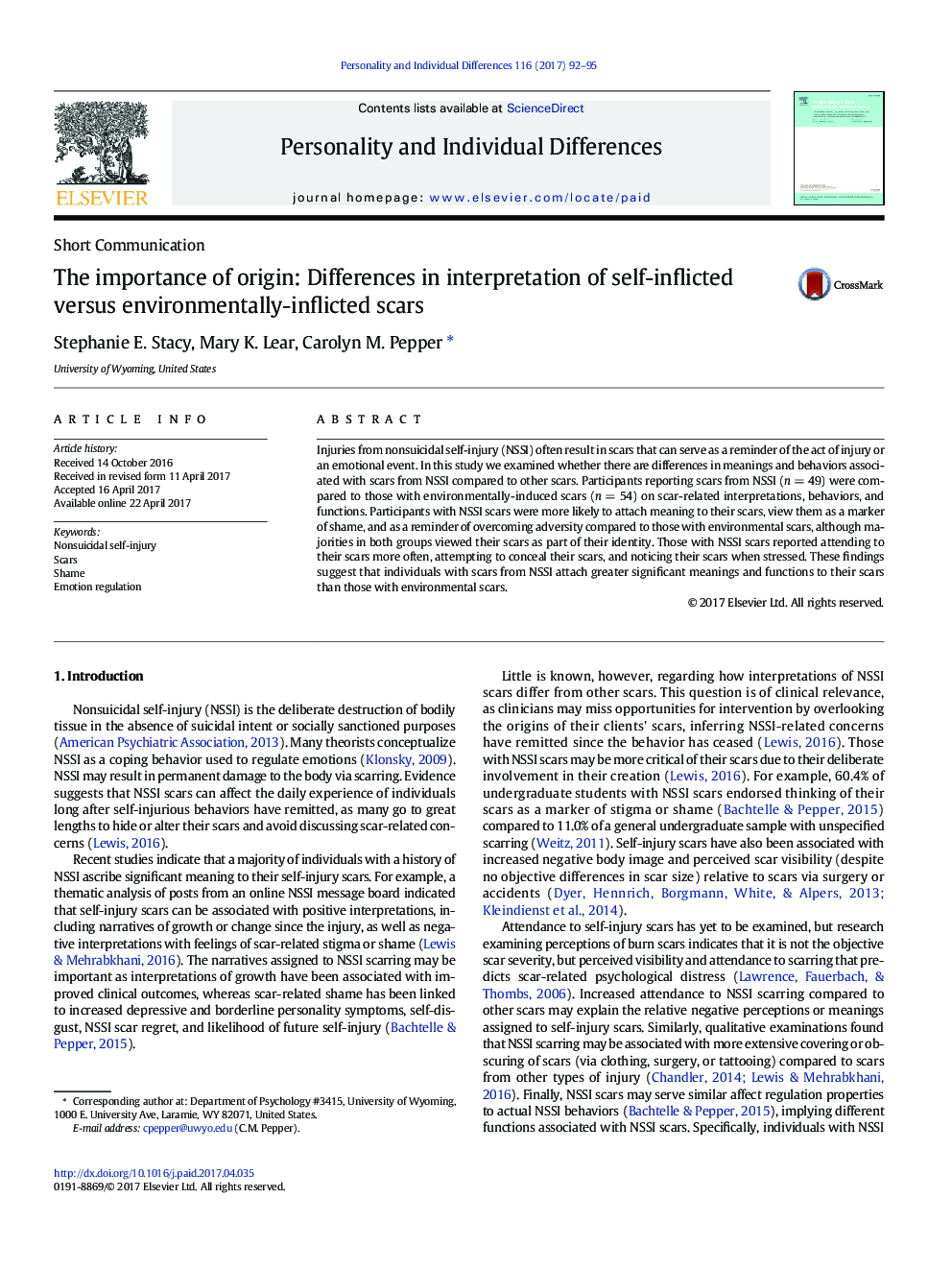| Article ID | Journal | Published Year | Pages | File Type |
|---|---|---|---|---|
| 5035640 | Personality and Individual Differences | 2017 | 4 Pages |
Abstract
Injuries from nonsuicidal self-injury (NSSI) often result in scars that can serve as a reminder of the act of injury or an emotional event. In this study we examined whether there are differences in meanings and behaviors associated with scars from NSSI compared to other scars. Participants reporting scars from NSSI (n = 49) were compared to those with environmentally-induced scars (n = 54) on scar-related interpretations, behaviors, and functions. Participants with NSSI scars were more likely to attach meaning to their scars, view them as a marker of shame, and as a reminder of overcoming adversity compared to those with environmental scars, although majorities in both groups viewed their scars as part of their identity. Those with NSSI scars reported attending to their scars more often, attempting to conceal their scars, and noticing their scars when stressed. These findings suggest that individuals with scars from NSSI attach greater significant meanings and functions to their scars than those with environmental scars.
Related Topics
Life Sciences
Neuroscience
Behavioral Neuroscience
Authors
Stephanie E. Stacy, Mary K. Lear, Carolyn M. Pepper,
